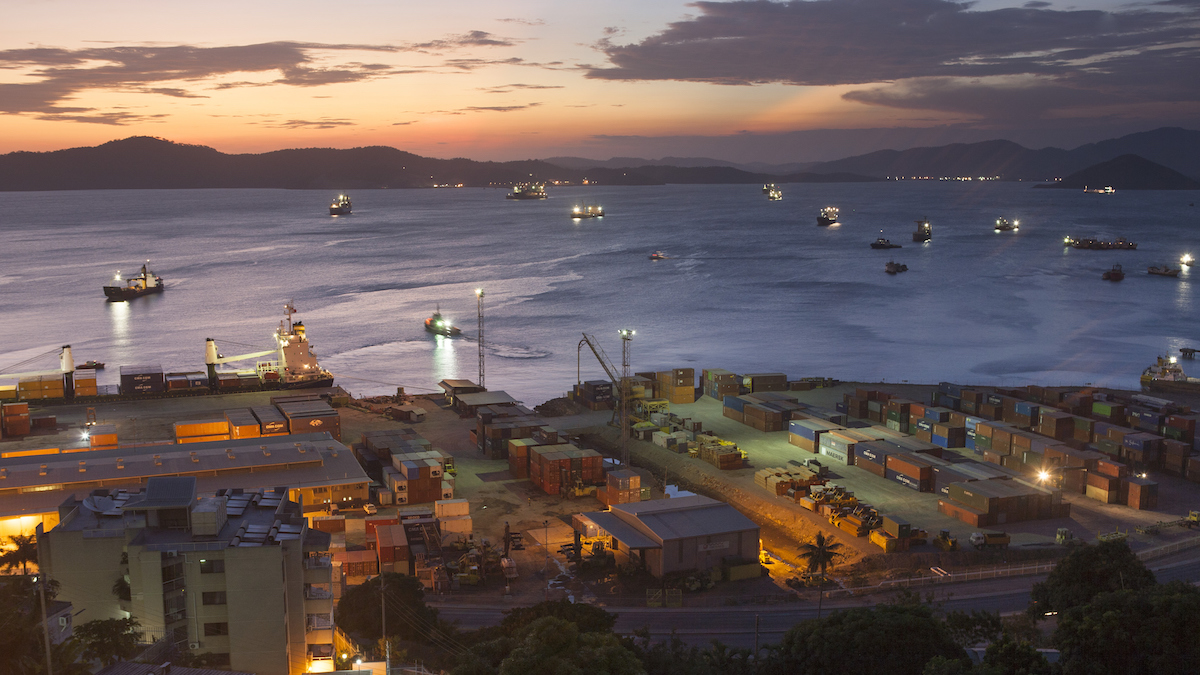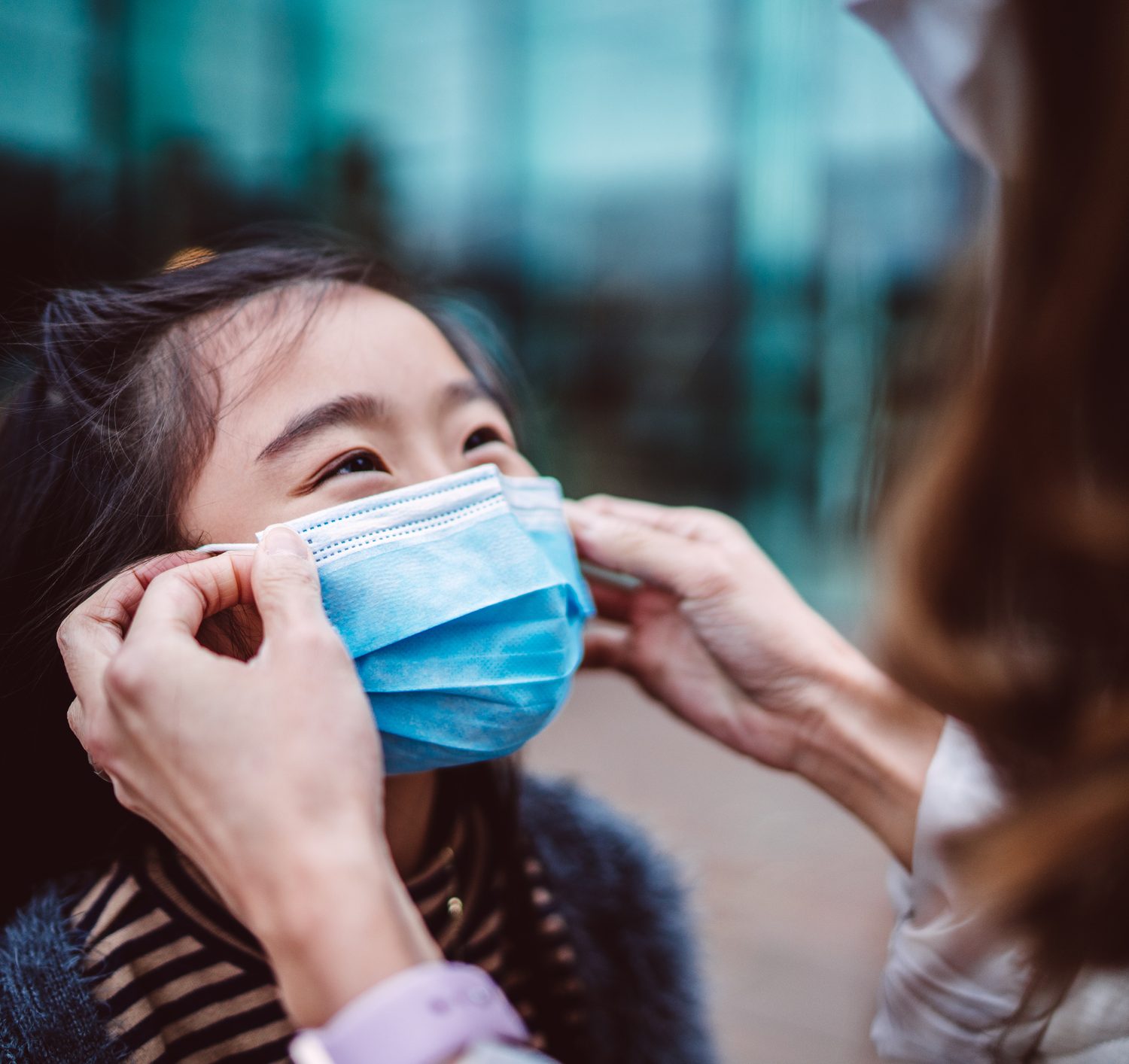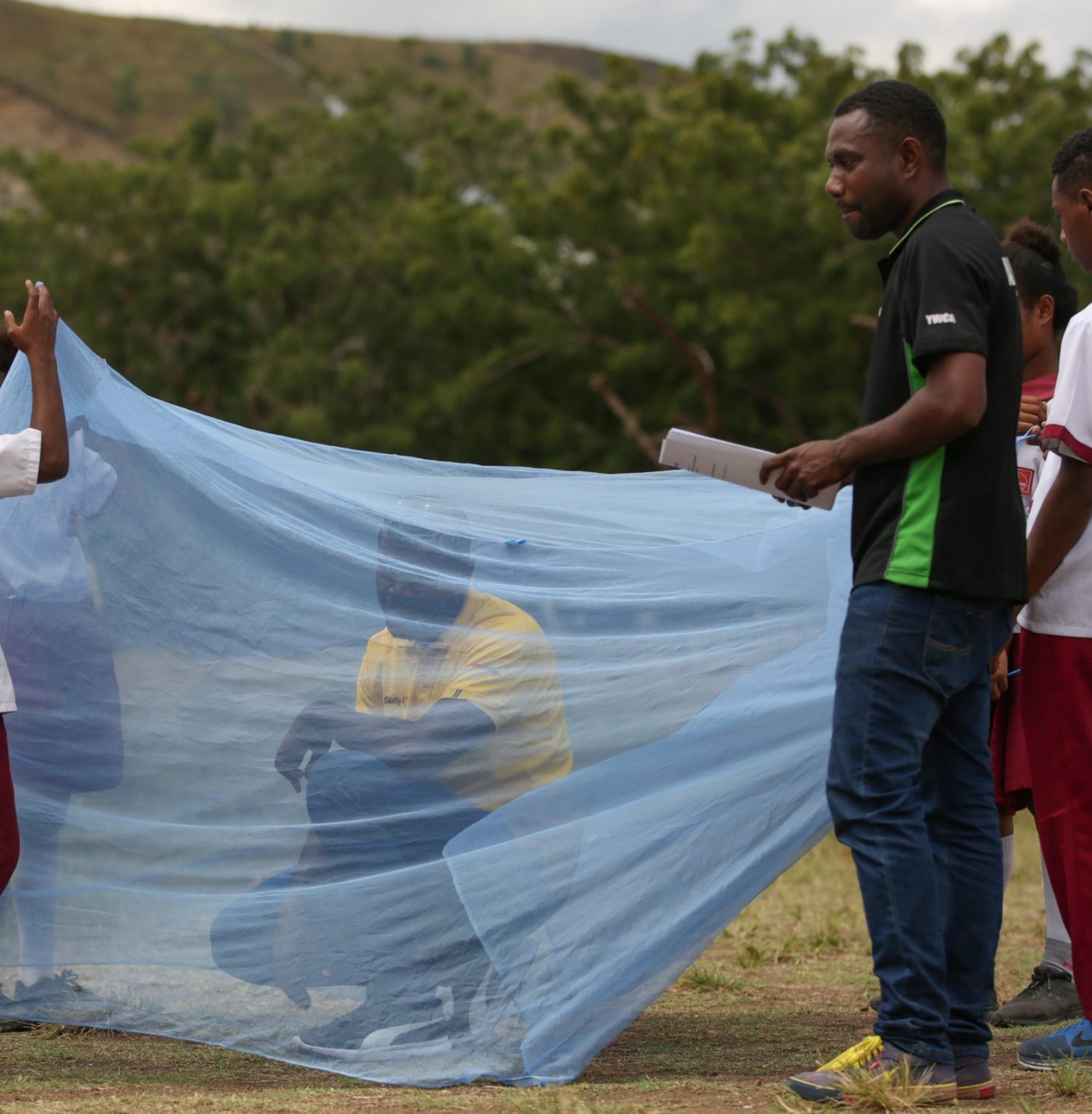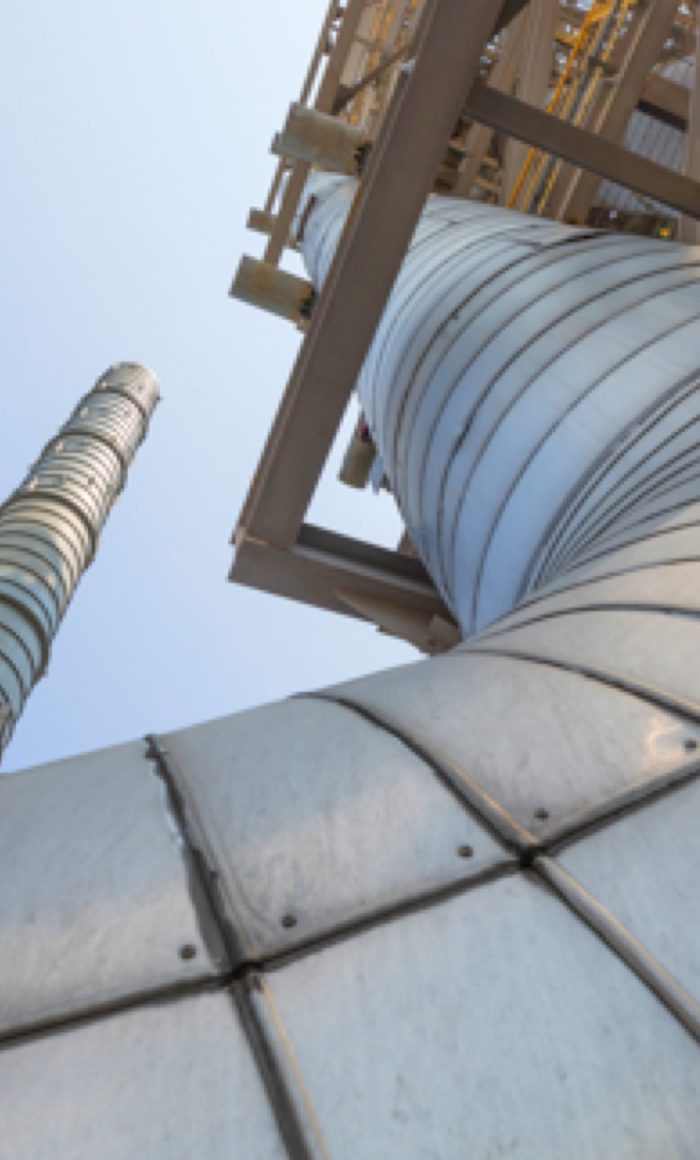Like all countries around the world, Papua New Guinea has been working to prevent the spread of coronavirus in their country, recruiting major companies to help share government health advice and put the power of protection in Papua New Guinean hands.
ExxonMobil offered the PNG National Department of Health (NDoH) its network of more than 50 Village Liaison Officers (VLOs), to help share government health advice in remote areas where the company operates.
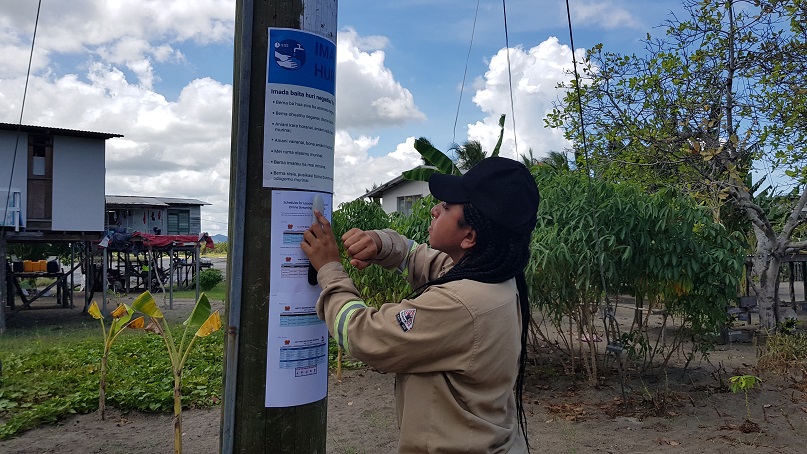
ExxonMobil workers, like Lovelyn Kila, have been communicating COVID-19 safety information.
VLOs are trusted and respected members of local communities such as clan leaders or councillors who utilise PNG’s unique ‘wantok’ cultural social networks, more effectively sharing information.
“During the pandemic, our VLOs have been crucial in creating a two-way communication between villages and the NDoH. They speak the local languages and dialects and have been very effective in getting the message out,” ExxonMobil Upstream Community Affairs Manager Richard Haguai said.
To support PNG’s COVID-19 efforts, ExxonMobil has:
– Used its extensive local communication network to provide villages safety information
– Translated publicly available World Health Organisation materials in Tok Pisin
– Provided triage tents and medical protective equipment to health services
“This network is employed by ExxonMobil to actively inform community members about the company’s activities and listen to their concerns, and now it is being used to support the NDoH, raising awareness of COVID-19 prevention and safety measures as well how to implement social distancing,” Richard said.
He added that ExxonMobil had also assisted with translation of publicly available World Health Organisation materials in Tok Pisin (one of PNG’s official languages), that the NDoH is disseminating, as well as delivering them directly to aid stations to further strengthen safety communication.
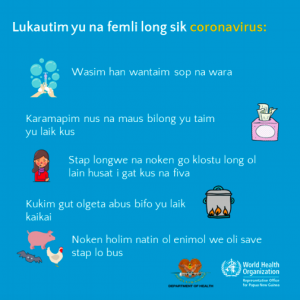
ExxonMobil helped the W.H.O. translate posters into local languages and get them to aid stations. Source: W.H.O.
Richard said that the company is also supporting the local economy by hiring nine local small businesses to make 10,000 facemasks for ExxonMobil’s workforce, as well as buying surplus vegetables grown in local villages for workers’ meals.
“This is so people can continue to earn an income no matter what their situation, helping to sustain them during this time and beyond,” he said.
He said this allows the NDoH to focus on their wider objectives of providing health services to major population centres.
ExxonMobil, together with LNG engineer and gas plant builder Chiyoda Oceania, has also provided provincial health authorities with triage tents, infra-red thermometers and surgical masks.
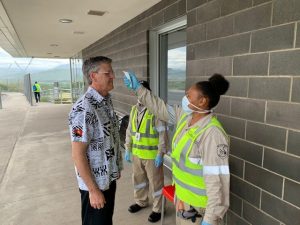
ExxonMobil has supplied infrared thermometers to people in the highlands Hela district.
“Local health care centres are located right in the middle of communities and the COVID-19 pandemic has raised concerns around screening methods,” said Dr. James Amini, chief executive officer of PNG’s Central Province Health Authorities.
“These new triage tents will not only provide a separate area where frontline officers can isolate patients but give us peace of mind that we are now better prepared to respond to future medical emergencies,” he said.
NDoH secretary, Dr Paison Dakulala, said the equipment will help the frontline workers in doing the testing and caring for those that get sick.
As the world is impacted by COVID-19, ExxonMobil is supporting PNG government efforts to raise awareness, helping to keep the country and its staff safe.
